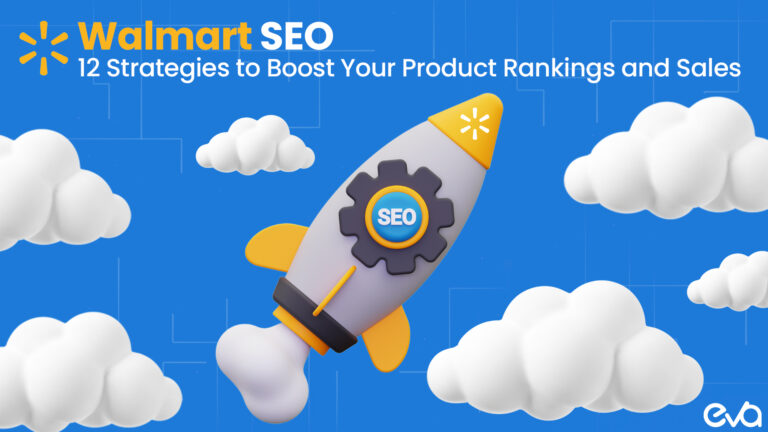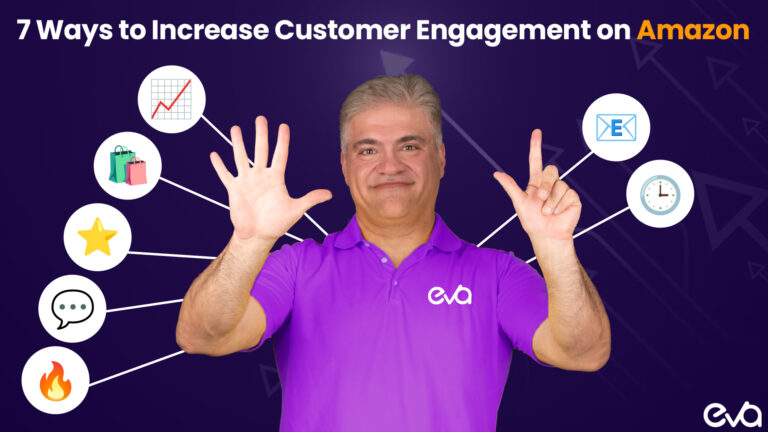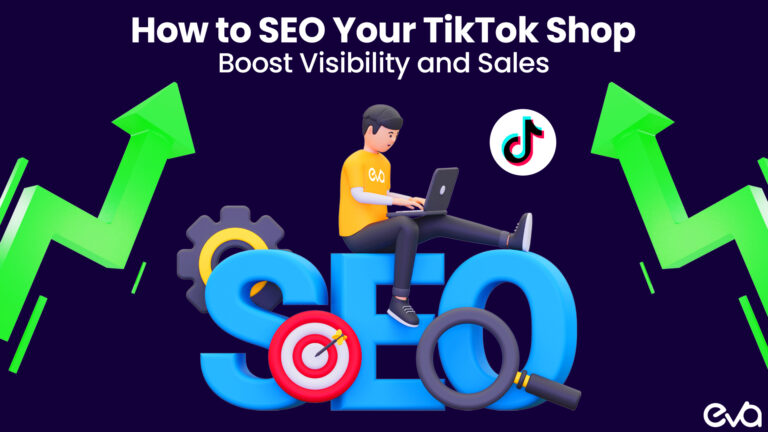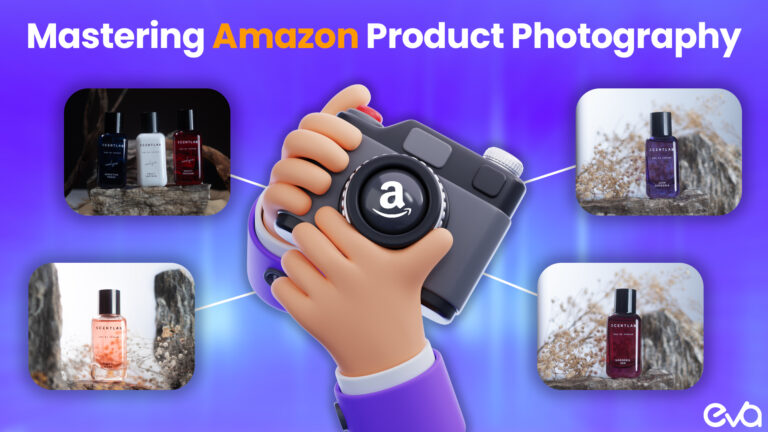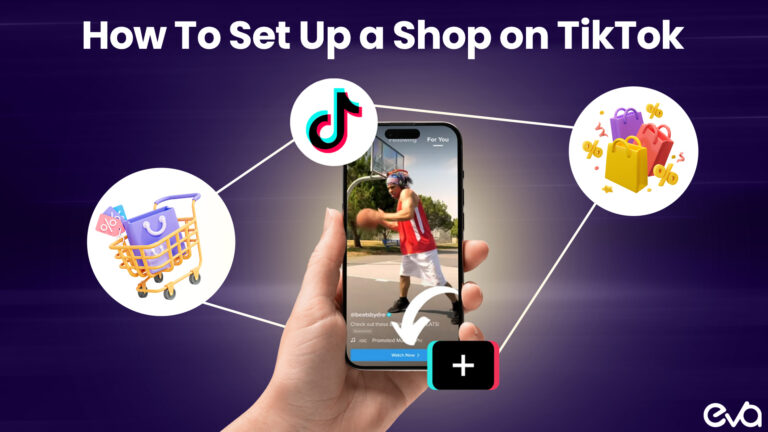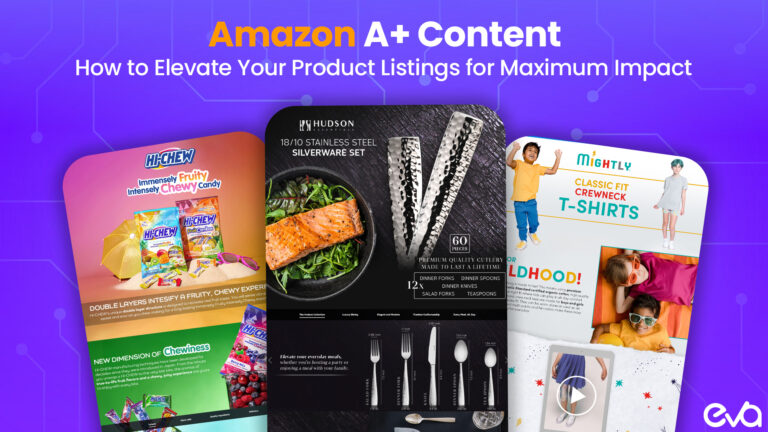In recent years, Amazon FBA has been the preferred choice for many eCommerce businesses looking to simplify their fulfillment process.
However, with rising fees, long-term storage costs, and limited control over the customer experience, FBA may not be the best fit for every Amazon brand. Fortunately, there are alternatives to Amazon FBA that can provide more flexibility, cost savings, and control over the entire fulfillment process.
In this blog post, we’ll explore the best alternatives to Amazon FBA, highlighting their features, pros & cons to help you make an informed decision for your business.
Table of Contents
- Why Choose an Amazon FBA Alternative?
- Table Comparing All Amazon FBA Alternatives
- Alternative #1: Amazon MCF (Multi-Channel Fulfillment)
- Alternative #2: Amazon FBM (Fulfillment By Merchant)
- How Does Amazon FBM Work?
- Alternative #3: 3PL (Third-Party Logistics) Fulfillment
- Alternative #4: Dropshipping
- Alternative #5: Social Media
- Alternative #6: eCommerce Platforms
- Conclusion
- FAQ | Amazon FBA Alternative
Why Choose an Amazon FBA Alternative?
Many sellers are exploring alternatives to Amazon FBA when it comes to selling on Amazon. Why? Because these alternatives offer unique advantages that can positively impact your business.
Let’s dive deeper into two key reasons why choosing an Amazon FBA alternative might be right for you.
Avoid Higher Fees and Boost Your Profitability
Amazon FBA charges various fees that can significantly impact your profit margins. These fees include the Fulfillment Fee, Per-Unit Storage Fee, and Long-Term Storage Fee.
As your inventory volume increases, so do these costs. By opting for an alternative, you can regain control over your expenses and boost your profitability.
Imagine the freedom of avoiding additional charges and keeping more money in your pocket. With an Amazon FBA alternative, you can explore pricing structures that align with your business needs.
These alternatives can help you optimize your cost structure and maximize your earnings, whether it’s lower fulfillment fees or more transparent pricing models.
Take Charge of Your Inventory and Customer Experience
One of the drawbacks of using Amazon FBA is the limited control you have over your inventory and customer experience.
When you rely solely on Amazon’s fulfillment service, they dictate various aspects of your business, such as pricing, shipping methods, and customer service. This lack of control can hinder your ability to differentiate yourself from competitors and provide a unique brand experience.
By choosing an Amazon FBA alternative, you reclaim ownership over these critical aspects. You can set your own prices, and select shipping methods that align with your customers’ preferences.
Also, you can directly engage with your customers to build lasting relationships. This increased control not only allows you to tailor your brand experience but also enables you to differentiate yourself in a competitive marketplace.
Table Comparing All Amazon FBA Alternatives
| Amazon FBA | Amazon FBM | Amazon MCF | 3PL | Dropshipping | Shopify | WooCommerce | Social Media | |
| Inventory Control | Limited | Full control | Full control | Full control | Limited | Full control | Full control | Limited |
| Storage | Amazon | Merchant-owned warehouse(s) | Amazon warehouses | 3PL provider’s warehouse(s) | Supplier’s warehouse | Merchant-owned warehouse(s) | Merchant-owned warehouse(s) | No physical storage required |
| Fulfillment | Amazon | Merchant | Amazon | 3PL provider | Supplier | Merchant | Merchant | Merchant |
| Shipping | Amazon | Merchant | Amazon | 3PL provider | Supplier | Merchant | Merchant | Merchant |
| Fees | Various | No fulfillment fees | Varies based on usage | Varies based on the provider | Cost of products | Monthly plan + transaction fees | Free (self-hosted) or paid extensions/plugins | No fees |
| Control over Pricing | Limited | Full control | Limited control | Full control | Full control | Full control | Full control | Limited control |
| Customer Service | Amazon | Merchant | Amazon | Varies (handled by the provider) | Supplier or merchant | Merchant | Merchant | Merchant |
| Branding | Limited | Full control | Limited control | Varies (dependent on provider) | Limited control | Full control | Full control | Limited control |
| Platform Features | Extensive | Basic | Basic | Varies (dependent on provider) | Varies (dependent on the platform) | Extensive features | Extensive features | Limited features |
| Scalability | High | High | High | High | High | High | High | Varies (dependent on the platform) |
Alternative #1: Amazon MCF (Multi-Channel Fulfillment)
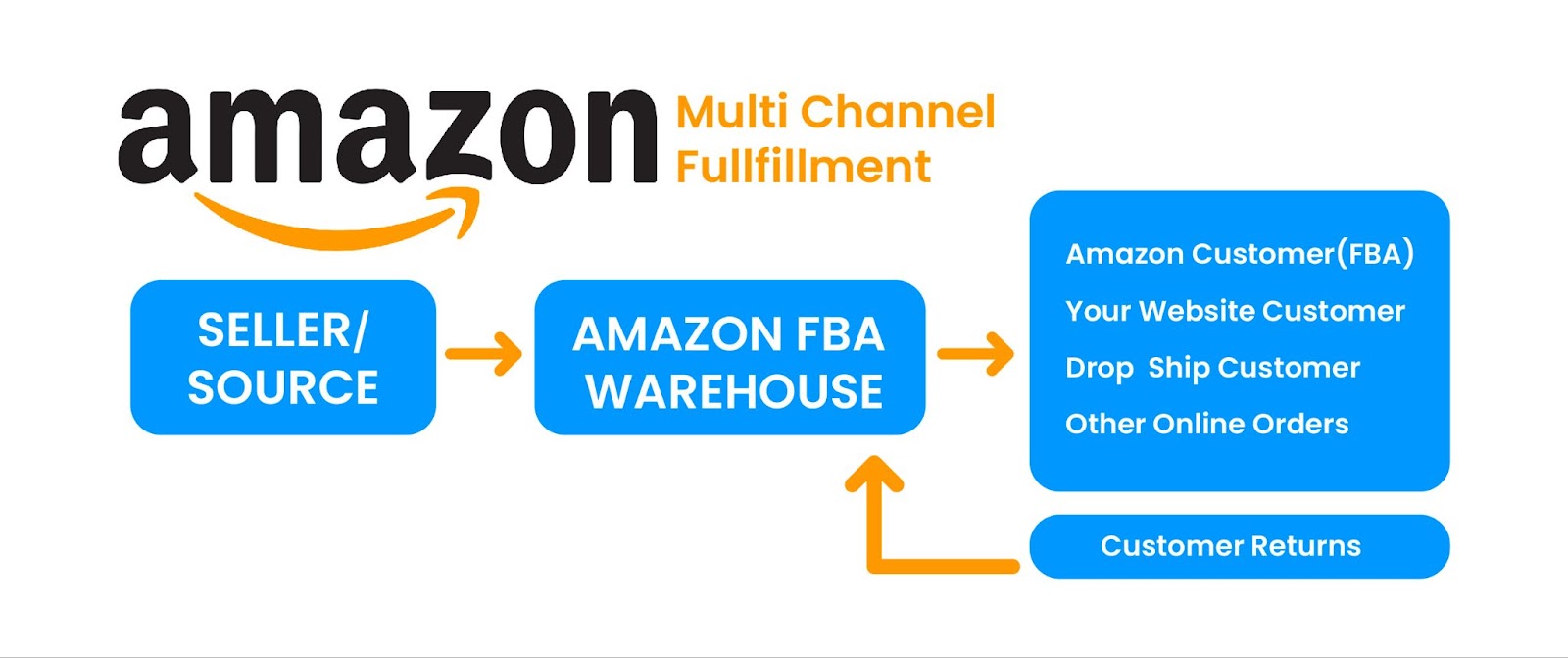
Amazon MCF stands for Multi-Channel Fulfillment, which is a service offered by Amazon that allows businesses to fulfill orders from channels other than Amazon.
Essentially, with Amazon MCF, businesses can leverage Amazon’s vast fulfillment network to fulfill orders from their own website and other marketplaces and sales channels.
With Amazon MCF, businesses can store their products in Amazon’s fulfillment centers, and when an order is placed, Amazon will pick, pack, and ship the item directly to the customer. This allows businesses to streamline their fulfillment operations and save on the time and resources needed to fulfill orders.
Additionally, businesses can take advantage of Amazon’s shipping rates and customer service, which can improve the overall customer experience.
How Does Amazon MCF Work?
Amazon Multi-Channel Fulfillment (MCF) is a service that lets businesses use Amazon’s fulfillment network to fulfill orders from their own websites or other sales channels.
With MCF, your Amazon brand can:
- Store their products in Amazon’s warehouses
- Let Amazon pick, pack, and ship orders
- Provide tracking information to customers
To use MCF, businesses must create a Multi-Channel Fulfillment order in their Amazon seller account.
MCF is a great way for businesses to expand their reach and improve customer experience. By using MCF, businesses can offer the same fast, reliable shipping that Amazon customers expect, regardless of where the order is placed.
Benefits Of Amazon MCF
Benefit #1: Access To Amazon’s Extensive Fulfillment Network
Amazon has a vast network of warehouses and fulfillment centers worldwide, allowing businesses to store their inventory in multiple locations and fulfill orders quickly and efficiently.
Benefits #1: Improved shipping speed and reliability:
Amazon is known for fast and reliable shipping. Businesses using Amazon MCF can take advantage of this to improve their shipping times and customer satisfaction.
Benefit #2: Reduced Fulfillment Costs
By using Amazon MCF, businesses can avoid the cost of setting up and managing their own fulfillment network, which can be expensive and time-consuming.
Benefit #3: Scalability
MCF can easily handle fluctuations in demand, which can be especially beneficial for businesses with seasonal or unpredictable sales patterns.
Benefit #4: Access To Amazon’s Customer Service
Amazon is known for its excellent customer service, and businesses using Amazon MCF can leverage this to improve their own customer support.
Benefit #5: Flexibility
Amazon MCF can fulfill orders from multiple sales channels, including a business’s website and other marketplaces, which can help expand its reach and increase sales.
Challenges Of Amazon MCF
Challenge #1: Cost
Amazon MCF fees can be higher than other fulfillment options, especially for smaller businesses with lower sales volumes.
Challenge #2: Limited Control Over Branding And Packaging
Since Amazon is handling the fulfillment process, businesses may have limited control over the packaging and branding of their products, which can impact the customer experience and brand perception.
Challenge #3: Limited Flexibility
Amazon MCF has specific product requirements and limitations, such as size and weight restrictions, which may not work for all types of products.
Challenge #4: Inventory Management Challenges
Managing inventory across multiple channels can be complex and time-consuming, especially for Amazon brands with a large product catalog.
Challenge #5: Shipping Time And Reliability
While Amazon has an extensive and efficient fulfillment network, shipping times and reliability can still be impacted by various factors such as weather, carrier delays, and more.
Alternative #2: Amazon FBM (Fulfillment By Merchant)
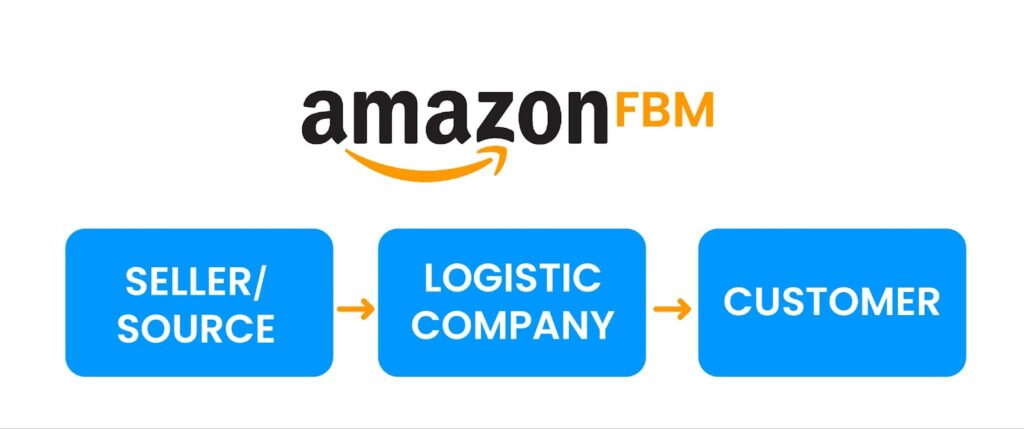
Amazon FBM (Fulfillment by Merchant) is a service offered by Amazon that allows businesses to fulfill orders directly to their customers rather than using Amazon’s fulfillment centers.
With FBM, businesses handle their products’ storage, shipping, and customer service. When an order is placed, the business ships the product to the customer and is responsible for all aspects of the transaction, including returns and refunds.
FBM is an excellent option for businesses wanting more control over the fulfillment process and selling unique or custom products that may not fit within Amazon’s standard fulfillment model.
Additionally, FBM allows businesses to save on storage and fulfillment fees, making it a more cost-effective Amazon FBA alternative for some sellers.
How Does Amazon FBM Work?
Fulfillment by Merchant (FBM) is a service that allows Amazon sellers to fulfill their own orders. With FBM, sellers are responsible for storing their products, packing and shipping orders, and providing customer service.
When an order is placed, the seller receives a notification and must then pick, pack, and ship the order within the allotted timeframe. Once the order has shipped, the seller must update the order with tracking information, and the customer receives an email notification.
Sellers who use FBM have more control over the fulfillment process and can avoid the fees associated with FBA. Additionally, FBM can be beneficial for businesses that sell large, bulky, or heavy items that would be cost-prohibitive to store and ship through FBA.
Advantages Of Amazon FBM
Greater control over the fulfillment process: With Amazon FBM, you are responsible for shipping and handling orders directly to customers, which means you have more control over the entire fulfillment process.
That can be beneficial if you have specific requirements for packaging, shipping times, or other logistics important to your business.
- Lower costs:
Since you are handling fulfillment yourself, you do not have to pay Amazon’s fulfillment fees, which can result in lower costs for your business. This is especially advantageous for smaller businesses or those with lower profit margins.
- Flexibility:
Amazon FBM can be a more flexible fulfillment option, allowing you to handle orders from multiple sales channels, including your website or other third-party marketplaces. This can help you expand your sales reach and grow your business.
Cons Of Amazon FBM
- More time-consuming:
Fulfilling orders yourself can be more time-consuming and require more resources, such as additional staff or equipment, than using Amazon FBA service. This can challenge your Amazon brand with limited resources or high order volumes.
- Less convenient for customers:
Customers may prefer the convenience of Amazon Prime and the benefits of free, two-day shipping that comes with it. If you are using Amazon FBM, you cannot offer Prime shipping, which could disadvantage customers.
- Potential for errors:
Since you are responsible for the entire fulfillment process, there is a greater potential for errors to occur, such as incorrect or damaged items being shipped. This can lead to negative customer reviews and impact your business reputation.
Alternative #3: 3PL (Third-Party Logistics) Fulfillment
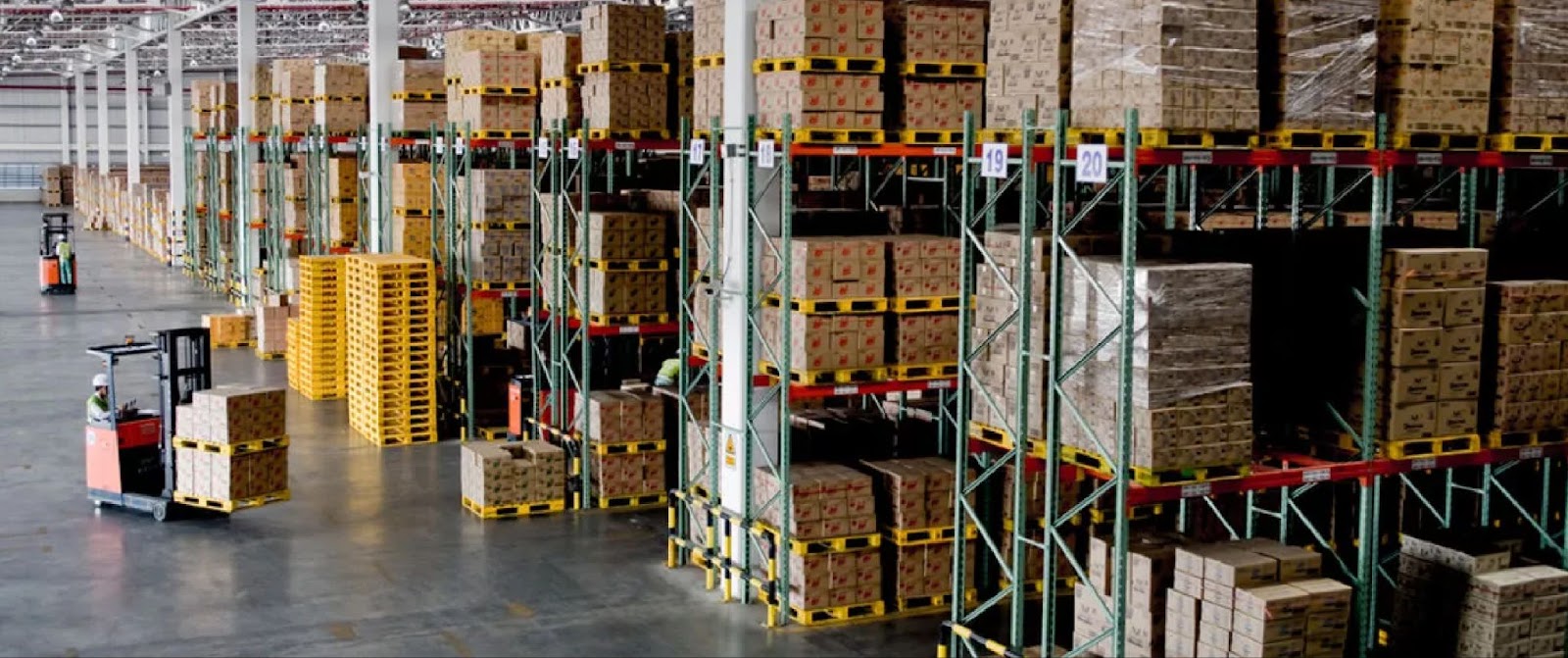
Third-Party Logistics (3PL) fulfillment is an outsourced logistics solution that allows businesses to outsource their entire order fulfillment process to a third-party provider.
The 3PL provider takes care of everything from receiving inventory to storing products in their warehouses, picking and packing orders, and shipping them to customers.
This service manages and optimizes the entire fulfillment process so that your Amazon brand can focus on other aspects of the operations, such as product development, marketing, and customer service.
By outsourcing their fulfillment process, eCommerce businesses can benefit from lower overhead costs, better scalability, and increased flexibility in their supply chain operations.
In addition, 3PL providers typically offer a range of value-added services, including order tracking, real-time inventory management, and analytics reporting to help businesses gain insights into their fulfillment operations and make informed decisions — a perfect Amazon FBA alternative!
How Does 3PL Fulfillment Work?
1) Receiving Inventory
When business partners with a 3PL provider, they typically send their inventory to the provider’s warehouse or distribution center.
The 3PL provider may offer additional services such as receiving, unloading, and inspecting the inventory upon arrival.
They may also check for accuracy and reconcile the shipment against the business’s records to ensure everything is in order.
2) Storing Inventory
The 3PL provider stores the inventory in their warehouses, which are often strategically located for optimal shipping and logistics.
They use their knowledge of inventory management to organize and optimize the storage space, ensuring that products are easily accessible for picking and packing.
This may involve creating specialized storage solutions such as temperature-controlled areas, hazardous materials storage, or high-security areas for high-value products.
3) Managing Inventory
The 3PL provider uses inventory management software to manage inventory levels and track the movement of products in real-time. This software can provide businesses with accurate inventory counts and updates on the status of their orders.
The 3PL provider may also provide additional services such as product labeling, barcoding, or tagging to ensure that products are easily identified and tracked throughout the fulfillment process.
4) Picking & Packing Orders
When a customer orders, the 3PL provider picks and packs the products from their warehouse and prepares them for shipping.
The provider will typically use their own processes and systems to ensure that orders are fulfilled accurately and efficiently.
Depending on the business’s requirements, the 3PL provider may offer additional services such as custom packaging, kitting, or bundling of products.
5) Shipping Orders
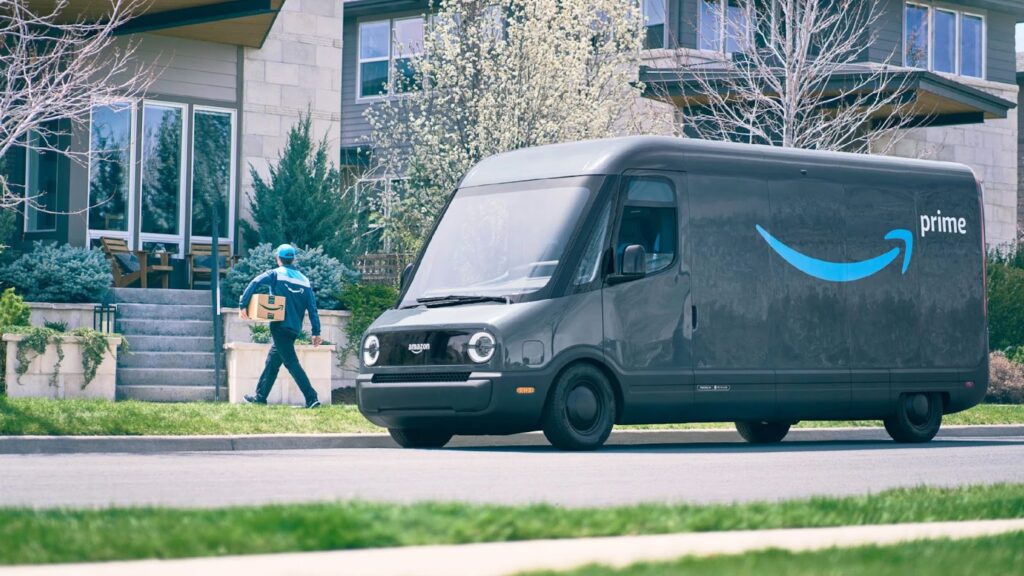
The 3PL provider ships the orders to customers, using their carrier network to ensure that the products are delivered on time and in good condition.
The provider will typically work with a range of shipping carriers to provide businesses with a choice of shipping options, including ground, air, or ocean freight. They may also negotiate shipping rates with carriers to help businesses save on shipping costs.
6) Customer Service
The 3PL provider manages customer inquiries and issues related to order fulfillment, ensuring that customers receive timely and accurate responses to their questions.
They may offer additional services such as order tracking and returns management to help businesses provide a high level of customer service.
Benefits Of 3PL Fulfillment
Benefits #1: Cost Savings
Outsourcing fulfillment to a 3PL provider as an alternative to Amazon FBA can save money on warehousing, transportation, and labor costs. Since 3PL providers have economies of scale, they can offer lower rates for these services than what businesses would pay if they handled fulfillment in-house.
Benefits #2: Scalability
As brands grow on Amazon, their logistics requirements change. A 3PL provider can help businesses scale up or down their fulfillment operations quickly and efficiently.
This means businesses don’t have to worry about investing in additional warehouse space, hiring more staff, or buying more equipment to handle increased order volumes.
Benefits #3: Improved Focus
By outsourcing their fulfillment to a 3PL provider, Amazon brands can focus on their core competencies, such as product development and marketing. This can lead to improved productivity, increased revenue, and a competitive advantage in the Amazon marketplace.
Benefits #4: Access To Expertise
3PL providers have specialized knowledge and experience in logistics and supply chain management. Businesses can tap into this expertise by partnering with a 3PL provider to optimize their fulfillment operations and improve their bottom line.
Benefits #5: Enhanced Customer Experience
3PL providers can offer businesses various fulfillment options, including same-day shipping, next-day delivery, and international shipping. This can help businesses meet their customers’ expectations for fast, reliable delivery, leading to increased customer loyalty and repeat business.
Challenges Of 3PL Fulfillment
Challenge #1: Loss Of Control
When a company outsources its fulfillment services to a 3PL provider, it relinquishes some control over the logistics process. The company may have less visibility into the fulfillment process, making it more difficult to manage and troubleshoot issues as they arise.
Challenge #2: Communication Issues
Miscommunication between a company and its 3PL provider can lead to delays, errors, and other fulfillment problems. Maintaining clear and open communication with the provider ensures that logistics operations run smoothly.
Challenge #3: Quality Control
Outsourcing logistics to a 3PL provider can create challenges when maintaining quality control. Companies may not have the same level of oversight over the fulfillment process, which can lead to mistakes, inaccuracies, and other quality issues.
Introducing 3PL Fulfillment By Eva
![No Inv [kurtarılan] 12](https://eva.guru/wp-content/uploads/2023/05/no-inv-kurtarilan-12.jpeg)
Eva is a third-party logistics (3PL) fulfillment service that offers a comprehensive solution to your logistics needs. Our service is designed to streamline your fulfillment operations, allowing you to focus on what matters most: growing your business.
Here are some of the benefits of using Eva for your 3PL fulfillment needs:
1. Data Integration
Eva offers the advantage of integrating supply chain data into advertising and pricing. By leveraging our advanced technology, we can provide you with real-time inventory data that can be used to inform your advertising and pricing strategies.
For example, if you are running an advertising campaign for a product that is low on stock, our system will notify you in real-time, allowing you to adjust your campaign accordingly. This ensures that you are not wasting money on advertising products that are out of stock or unavailable.
Similarly, you can use our real-time inventory data to inform your pricing strategy. By analyzing supply and demand data, you can adjust your pricing to maximize profitability and reduce waste.
2. Scalability
Our service is fully scalable, meaning we can handle any order volume, no matter how large or small. This allows you to grow your business without worrying about the logistics of fulfilling orders.
3. Cost-Effective
Using our 3PL fulfillment service can reduce your overall logistics costs. We offer competitive pricing on storage, pick and pack, and shipping, allowing you to save money while still providing top-notch fulfillment services to your customers.
4. Customizable
We understand that every business has unique needs, so our service is fully customizable, making it a perfect alternative to Amazon FBA!
We can tailor our fulfillment services to meet your specific requirements, ensuring that your customers receive the best possible experience.
5. Streamlined Operations
Our advanced technology allows us to automate many aspects of the fulfillment process, reducing the risk of errors and delays. This also lets us provide real-time tracking information to you and your customers, improving transparency and customer satisfaction.
6. Customer Service
At Eva, we pride ourselves on our exceptional customer service. Eva is available 24/7 to answer any questions you may have and provide support when you need it.
Alternative #4: Dropshipping
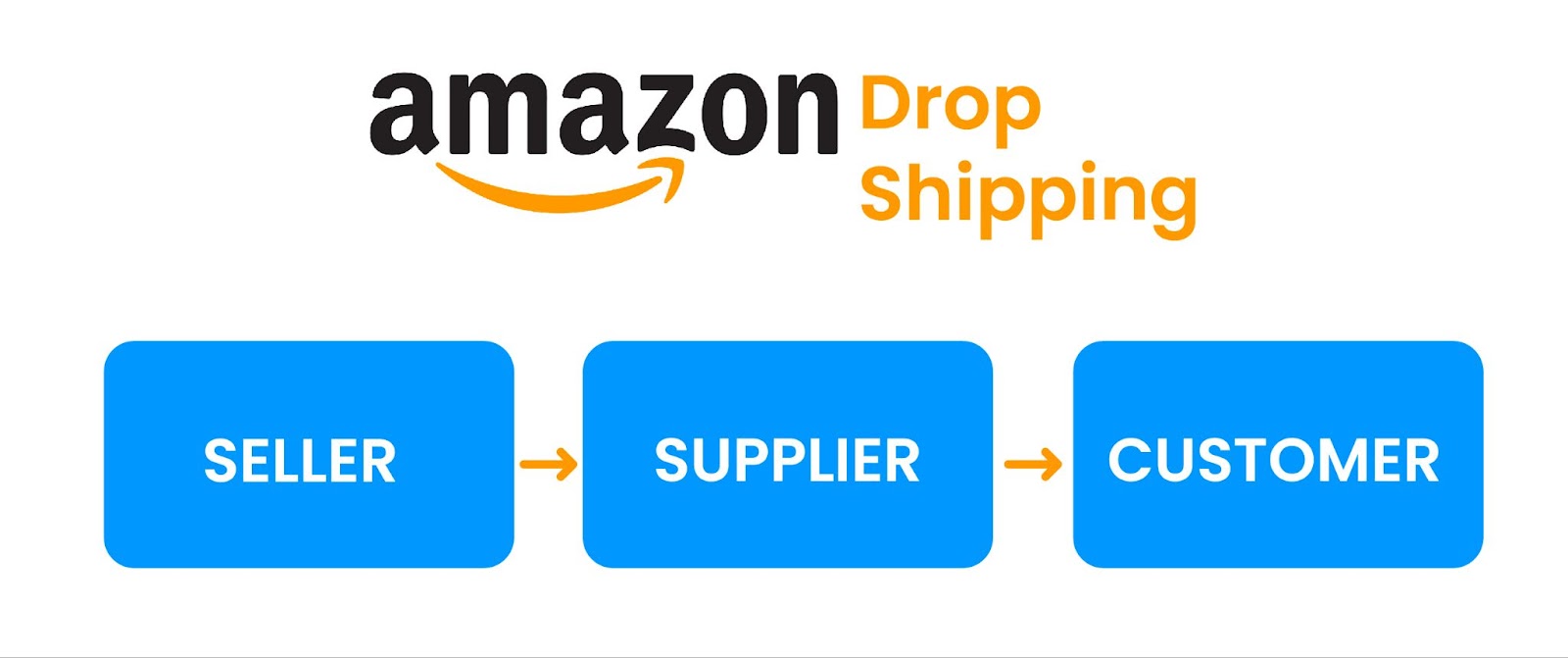
Dropshipping is an excellent alternative to Amazon FBA, allowing you to sell products without needing inventory storage. With drop shipping, you can focus on marketing and sales while leaving the logistics to your suppliers.
Pros and Cons
Dropshipping offers several advantages. Firstly, it eliminates the need for warehousing, saving you significant costs and reducing the risk of excess inventory.
This makes it an ideal choice for entrepreneurs who want to start an e-commerce business with minimal upfront investment.
Additionally, dropshipping grants you more control over product selection and pricing, enabling you to adapt quickly to market trends.
However, dropshipping also presents challenges. Finding reliable suppliers is crucial to ensure high-quality products and efficient order fulfillment. Research potential suppliers, read reviews, and request samples before partnering.
Building strong relationships with suppliers is essential for long-term success. You’ll also need to establish clear communication channels with your suppliers to manage customer expectations effectively.
Timely communication and quick resolution of any issues that arise will help maintain customer satisfaction.
How It Works
The dropshipping fulfillment process is straightforward. When a customer places an order on your online store, you forward the order details to your supplier.
The supplier then ships the product directly to the customer, cutting out the need for inventory management and shipping logistics on your end.
Remember to monitor stock levels and supplier performance regularly. Keep open lines of communication with your customers and promptly address any shipping delays or product issues that may arise.
By focusing on marketing, customer service, and building a strong brand, you can leverage dropshipping to create a profitable and scalable business.
Alternative #5: Social Media

Social media platforms have evolved into powerful e-commerce tools, allowing you to sell products directly to your audience.
Leveraging platforms like Facebook, Instagram, and Twitter can provide new opportunities for sales and customer engagement.
Pros and Cons
One of the significant advantages of social media is its enormous user base, providing access to a vast audience actively engaged with these platforms.
Social media lets you showcase your products visually and create engaging content that resonates with your target market.
Social media platforms also offer targeted advertising options that enable you to effectively reach your ideal customers.
However, using social media as an alternative to Amazon FBA comes with challenges. You’ll need to invest time and effort into building a strong social media presence and engaging with your followers.
Developing a content strategy that aligns with your brand voice and resonates with your audience is crucial.
Regularly post high-quality visuals, videos, and engaging captions that showcase your products and provide value to your followers. Actively engage with your audience by promptly responding to comments, messages, and inquiries.

While social media allows you to build a community around your brand, it’s important to remember that you’ll need to handle inventory management and shipping independently.
This may involve partnering with a reliable fulfillment service or third-party logistics provider. Maintaining efficient order processing and shipping is important to ensure customer satisfaction.
Consider leveraging shipping software like ShipStation to streamline your shipping process, print labels, and track shipments from multiple sales channels.
How It Works
To get started, create business accounts on relevant social media platforms and optimize them with compelling visuals, engaging descriptions, and a link to your online store or website.
Use targeted advertising to reach your desired audience and create content that showcases your products authentically and compellingly.
Encourage user-generated content by running contests and giveaways and engaging with your followers through comments and direct messages.
Direct your social media traffic to your online store, where customers can make purchases. With a solid social media strategy and consistent engagement, you can build a loyal customer base and drive sales beyond Amazon FBA.
Alternative #6: eCommerce Platforms
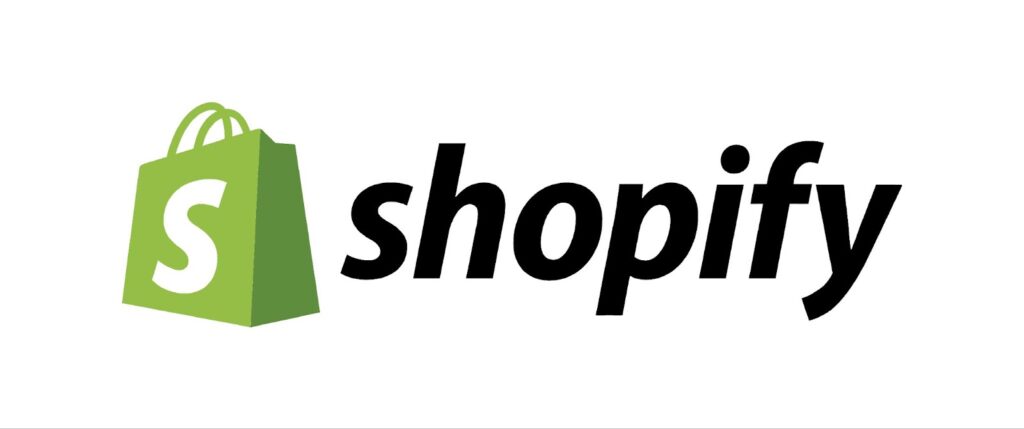
eCommerce platforms like Shopify and WooCommerce empower you to create and manage your online store, giving you complete control over your brand and customer experience.
Pros and Cons of eCommerce Platforms
By choosing an eCommerce platform as an alternative to Amazon FBA, you gain full control over product selection, pricing, and branding.
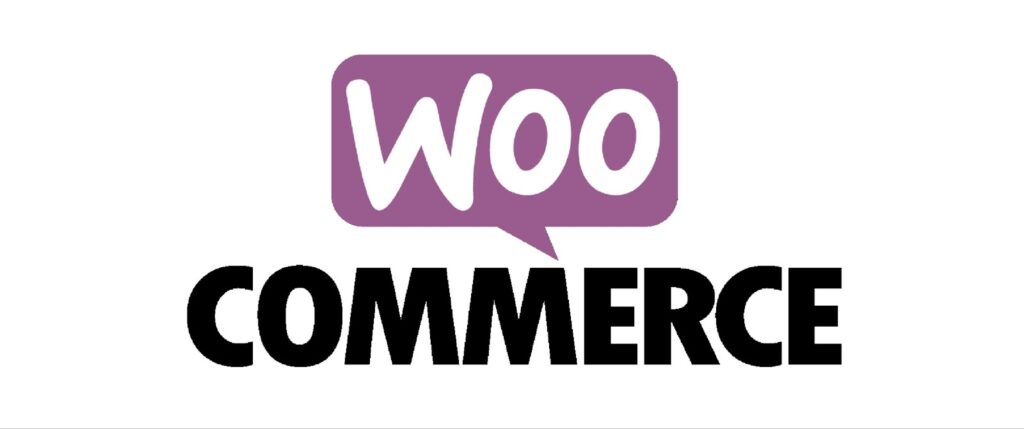
These platforms provide powerful inventory management systems, built-in shipping calculators, and a range of marketing tools.
You can customize the look and feel of your online store to align with your brand image and create a seamless shopping experience for your customers.
However, with this control comes the responsibility of managing inventory, warehousing, and fulfillment independently.
You’ll need a reliable warehousing solution that meets your storage and shipping needs. Consider utilizing third-party logistics providers like Eva, which allow you to compare rates and select the best option for your business.
How It Works
Sign up for an eCommerce platform like Shopify or WooCommerce to get started. Customize your online store with your branding elements, product descriptions, and high-quality product images.
Configure your shipping settings, including shipping rates, carrier integration, and order tracking. Make sure your inventory levels are accurately reflected on your store and that you have a system in place to manage and replenish stock.
Implement effective marketing strategies to drive traffic to your online store. Utilize social media, content marketing, email marketing, and search engine optimization to attract potential customers.
Monitor your store analytics to gain insights into customer behavior, identify opportunities for improvement, and refine your marketing strategies.
Conclusion
While Amazon FBA is a popular choice for businesses, it may not always be the most suitable option.
Several other Amazon FBA alternatives, such as MCF, FBM, and 3PL fulfillment providers, can offer similar or even better solutions based on specific business needs.
Careful consideration of the advantages and disadvantages of each option can help businesses make an informed decision about which fulfillment method to choose.
Choosing the right fulfillment service can be a critical factor in the success of any business. At Eva, we understand that each business has unique requirements, and we offer customized 3PL solutions to fit those needs.
In addition, our team of experts provides end-to-end supply chain management services, from warehousing to transportation, to ensure that your Amazon brand runs smoothly and efficiently.
Contact us anytime to schedule your Free Consultation and take the first step towards streamlined and hassle-free fulfillment operations.
FAQ | Amazon FBA Alternative
No. Several other methods let you operate without utilizing FBA. These include options such as dropshipping, FBM, selling print-on-demand, digital products, and eBooks on Amazon.
Absolutely! While FBA offers convenience and scalability, it comes with additional costs and complexities. By opting for alternative methods like dropshipping, print-on-demand, or selling digital products, sellers can generate income without needing FBA. Success largely depends on product selection, market demand, effective marketing strategies, and excellent customer service.
It requires careful planning, thorough research, dedication, and continuous effort. Identifying profitable product niches, implementing effective marketing strategies, managing inventory wisely, and consistently adapting to the evolving Amazon marketplace are crucial.
Here are the steps to get started:
1. Choose your business model: Decide on a method that aligns with your goals, such as dropshipping, print-on-demand, selling digital products, or selling eBooks.
2. Identify profitable products or niches: Conduct thorough market research to find in-demand products with a competitive advantage.
3. Source products or create digital products: Depending on your chosen method, source products from reliable suppliers or create your own digital products such as eBooks or software.
4. Create an Amazon seller account: Sign up for an Amazon seller account and choose the selling plan that suits your business needs.
5. Optimize product listings: Craft compelling and informative product listings using relevant keywords, enticing descriptions, and high-quality images or graphics.
6. Implement effective marketing strategies: Promote your products through Amazon PPC (Pay-Per-Click) advertising, social media marketing, influencer collaborations, or content marketing.
7. Provide excellent customer service: Ensure timely order fulfillment, respond to customer inquiries promptly, and strive for positive feedback and reviews.
8. Continuously refine your approach: Monitor your sales, analyze data, and make adjustments to your strategies based on market trends and customer feedback.


